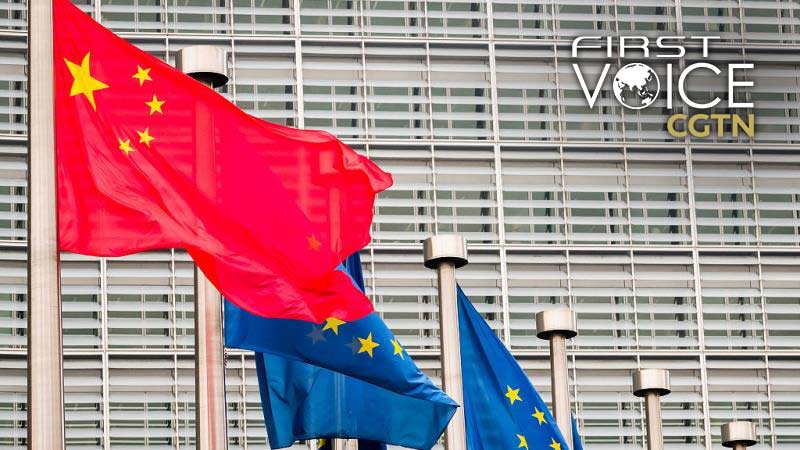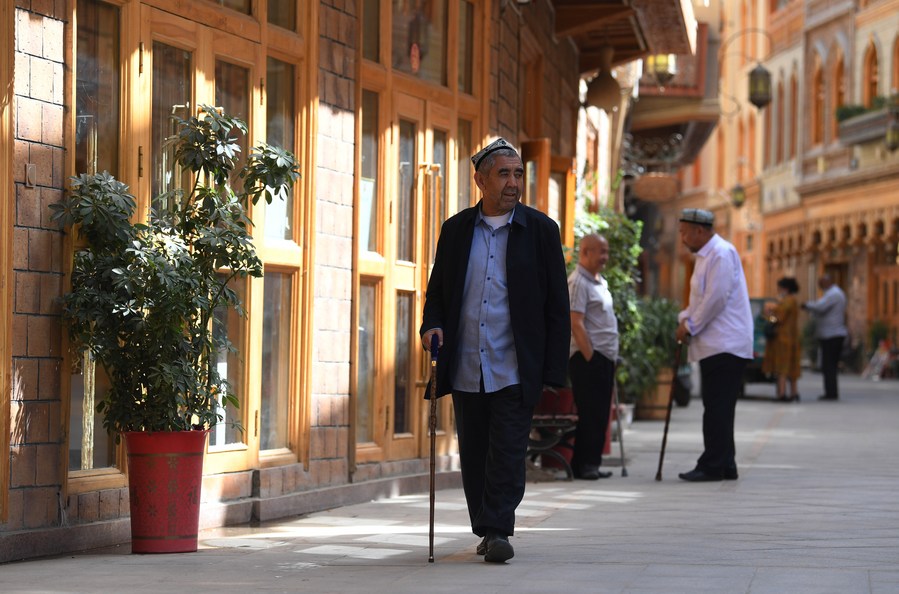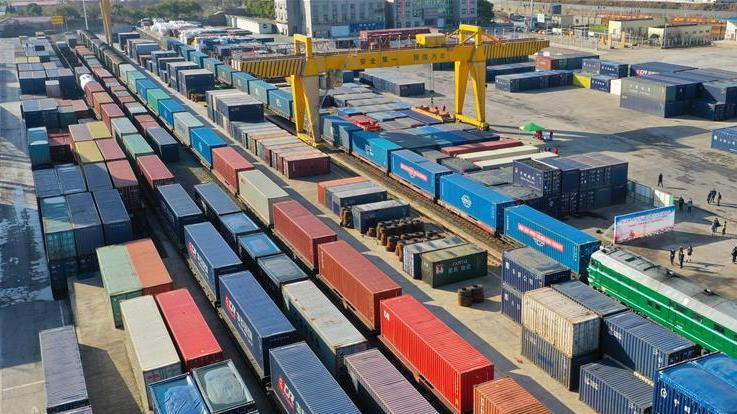
Editor's note: CGTN's First Voice provides instant commentary on breaking stories. The daily column clarifies emerging issues and better defines the news agenda, offering a Chinese perspective on the latest global events.
China's relationship with the European Union (EU) has long been built on diplomacy, engagement and reciprocity. The two partners have maintained a working relationship with their own geopolitical interests over the past few years even as pressures elsewhere have urged them not to do so.
But that relationship doesn't mean falsification and provocation would go unanswered. EU's decision to implement sanctions on Chinese officials over Xinjiang Uygur Autonomous Region marks an unacceptable interference in China's internal affairs. In response, China announced its sanctions against 10 European individuals and four entities.
"The lie of the century" is what China's Foreign Ministry have used to describe the American led propaganda on the Xinjiang issue. That is precisely what is, no more and no less. Beginning in 2018, the issue of Xinjiang and Uygurs was forced onto the global media agenda by the Trump administration who have sought to geopolitically weaponize it in order to discredit China, generate public anger against it and incentivize the idea of decoupling. This is a process which is known as "manufacturing consent" - the emphasis not been on empirical facts, but talking points and narratives, designed to push various outcomes.
Dubious far-right experts such as Adrian Zenz, who are a target of China's sanctions, have been given an open platform to push their ideological agenda on China without receiving due scrutiny of their research. As a result, these repeated "studies" and sensational stories are being used as intended, to destabilize positive diplomatic relationships with China at the behest of American strategic interests.

People walk in the "Dove Lane" in the old town Tuancheng of Hotan City, northwest China's Xinjiang Uygur Autonomous Region, May 27, 2020. /Xinhua
People walk in the "Dove Lane" in the old town Tuancheng of Hotan City, northwest China's Xinjiang Uygur Autonomous Region, May 27, 2020. /Xinhua
The EU's choice to impose sanctions illustrates this continuing problem of this kind of propaganda using the Xinjiang issue in order to derail and raise the moral costs of engagement with China. The EU had some degree of skepticism towards this. Although there have always been differences between the EU and China in terms of ideology, or so-called values, EU states had been hesitant to go on the path of imposing sanctions on China for the fact that the relationship matters deeply and it was not in their best interests to do so.
Individuals like Zenz are saboteurs. Many of the so-called NGOs or research facilities and their surrogate organizations have intentionally made life difficult for the EU to feasibly engage with China and sought to tear down the relationship where possible, forcing state leaders to consider this path in order to save their political fortunes.
This is the wrong path. The region and China have accomplished much despite differences and difficulties. In 2020 alone, Brussels and Beijing secured two major achievements - the agreement on geographical indications, a mini-trade deal protecting hundreds of regionally derived products, and completed the negotiation on the Comprehensive Agreement on Investment (CAI) that broadens Europe's market access in China.

The China-Europe freight train is waiting for departure at Xiangtang railway port in Nanchang, east China's Jiangxi Province, February 17, 2020. /Xinhua
The China-Europe freight train is waiting for departure at Xiangtang railway port in Nanchang, east China's Jiangxi Province, February 17, 2020. /Xinhua
And the EU is not in a strong position right now. Its economy has been depleted over the COVID-19 and as the result years of relative stagnation in the eurozone. Its vaccine rollout has been a disaster and it is now facing a third wave of infections. Given that China is now the largest trading partner of the European Union and that China's economic recovery from the pandemic has surpassed every other country, it is a very damaging decision to go down the sanctions route.
China has the capacity to respond and it wouldn't let the sanctions go unanswered. The sabotaging activities cannot be met without a response. The EU must understand now that if it is to walk further down this road and interfere in China internal affairs, China will respond to protect its interests and reciprocate where necessary.
But engagement will remain a top priority. That is the desire, that is the goal. However, that engagement will not come at the price of its national sovereignty or dignity. Europe must treat China as an equal, and with respect.
China-EU relationship remains one of the world's most important diplomatic and economic partnerships. False narratives designed to hurt China geopolitically cannot be allowed to get in the way of it. The so-called genocide in Xinjiang is the lie of the century. And such an unprecedented falsification and those who keep pushing it will be met with stern actions from China.
(If you want to contribute and have specific expertise, please contact us at opinions@cgtn.com.)

